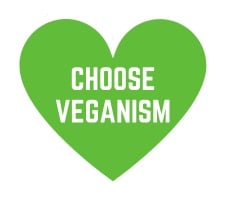Social media users have been quick to slam a vegan landlord’s decision to prohibit tenants from cooking meat in their rented homes. Controversial? Here’s what you need to know.

Photo by Fernando Gonzalez from Pexels.
In a world where lifestyle and dietary choices are increasingly diverse, a New York-based vegan landlord has made headlines by implementing a unique policy: prohibiting prospective tenants from cooking meat in their rental homes.
This bold move has sparked passionate debates across social media platforms, highlighting the importance of personal beliefs, tenant rights, and the far-reaching impact of a vegan lifestyle.
Understanding the New York Vegan Landlord’s Meat Ban
The vegan landlord’s decision to ban meat cooking in their rental properties may seem drastic to some, but it reflects a deep commitment to living an ethical, compassionate, and eco-conscious life.
A Question of Ethics
Ms. Michal Arieh Lerer, the New York vegan landlord, resides in the same building as her tenants. This proximity creates a unique situation where the landlord’s own living space is directly affected by the activities of those around them.
Is Veganism a Protected Characteristic?
Veganism is a protected characteristic in various parts of the world.
Article 7 of the US Declaration specifies that vegans are entitled without discrimination to equal protection of the law. Article 18 reinforces this, stating that vegans have the right to practice and teach their beliefs.
UK laws are somewhat similar. In 2020, ethical veganism became classified as a ‘philosophical belief’ and therefore one of nine protected characteristics listed under the Equality Act of 2010.
Just as any tenant has the right to expect a comfortable and pleasant living environment, Ms. Michal Arieh Lerer wishes to maintain an atmosphere that aligns with her values. By creating an environment that aligns with their values, the landlord aims to promote a cruelty-free and sustainable way of living, even within the confines of a rental agreement.
Though balancing tenant rights with a landlord’s personal preferences can be complex, respectful dialogue can help foster understanding and bridge any gaps that may arise.

Photo by Christian Koch on Unsplash.
Embracing the Vegan Lifestyle
For many, veganism is about more than dietary choices. It’s a lifestyle that prioritizes:
Animal Welfare
Many vegans’ primary motivation is a strong commitment to animal welfare. Vegan lifestyles actively reduce the demand for factory farming and its associated cruelties by abstaining from animal products. The New York vegan landlord’s meat ban is a bold step towards extending these ethical considerations to the living spaces they provide, creating an environment that reflects their compassion for all sentient beings.
Health Benefits
The vegan lifestyle has gained recognition for its potential health benefits. Plant-based diets can be rich in essential nutrients, lower in saturated fats, and help reduce the risk of certain chronic diseases. The vegan landlord’s meat ban may encourage tenants to explore the plethora of delicious and nutritious vegan alternatives, fostering a healthier and more conscious approach to cooking and eating.
Looking for delicious new vegan dishes to try? Check out our range of recipes here.
Environmental Sustainability
Adopting a vegan lifestyle is a powerful way to contribute to a more sustainable future. According to Food Research International, the meat industry is a significant contributor to greenhouse gas emissions, deforestation, and water pollution. Meat alone accounts for almost 60% of all greenhouse gases.
By promoting plant-based cooking in their rental properties, Ms. Michal Arieh Lerer actively supports tenants in reducing their ecological footprint and embracing a more environmentally friendly vegan lifestyle.
Navigating Tenant Rights and Legal Considerations
While the New York vegan landlord’s meat ban has garnered attention, it also raises questions about tenant rights and the limits of landlord authority. It is important to recognize that rental agreements are subject to legal regulations and tenants have certain rights that must be respected.
However, landlords also possess some discretion in establishing rules that align with their values, as long as they do not infringe upon tenants’ legal rights or discriminate based on protected characteristics.
Encouraging Healthy Debates and Personal Choices
The story of the New York vegan landlord sparks an array of debates around personal choices, tenant rights, and the boundaries of veganism. It is vital to foster healthy discussions that respect diverse perspectives, allowing us to learn from one another and grow as a society.
Whether you agree or disagree with the meat ban, engaging in these conversations can lead to a deeper understanding of ethical considerations, the impact of our choices, and the possibilities for a more compassionate and sustainable future.
Is Banning Meat Controversial?
The landlord’s meat ban serves as a powerful reminder of the influence and reach of a vegan lifestyle. It encourages us to reflect on our dietary choices, consider the broader impact of our actions, and engage in meaningful conversations about animal welfare, personal beliefs, and the pursuit of a sustainable future.
By sparking debates and fostering respect for differing viewpoints, we can work towards a world where compassion, sustainability, and individual rights coexist harmoniously.
